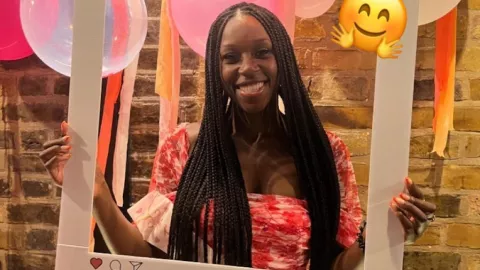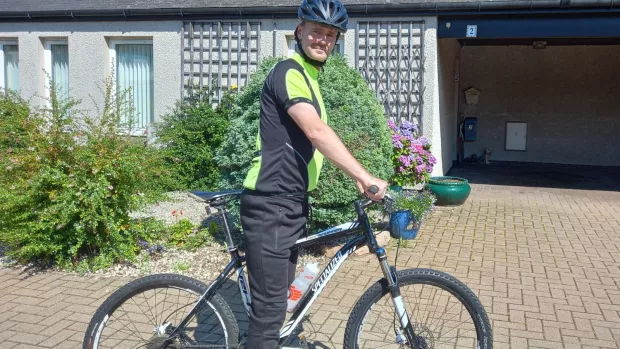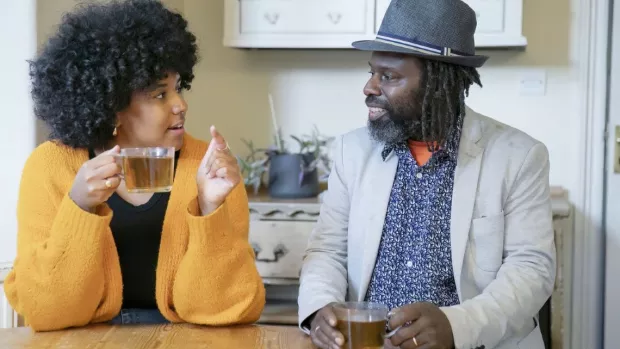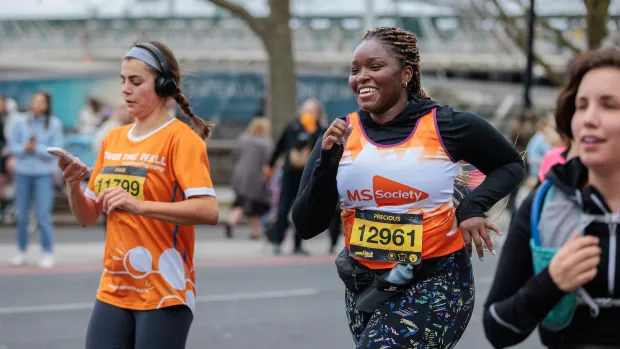
Climbing Mount Kili for MS
Nicolla has always been a support to her mum, Anne, who’s been living with MS for 45 years. This autumn she’ll be climbing Mount Kilimanjaro to raise money and awareness for MS.
Hi Nicolla, tell us about yourself and your mum. And your MS journey together.
When I was younger, I remember caring for my mum in small ways. I’ve pretty much been on most of the journey with her and her MS. I didn’t notice it so much when I was younger, only after her mobility decreased and she got her first walking stick. I remember thinking “mum’s slower at walking now and she needs a stick?” She explained to me she had an illness, but I was young and didn’t really grasp it. I didn’t understand things until I got a bit older.
Find out more about talking to children about MS
Living with MS, together
How does MS affect you both? What symptoms impact you the most?
Anne: MS has affected me by slowly taking my strength and mobility. My symptoms have changed over the years and now I have progressive MS. Fatigue is the worst now and the muscle spasms.
When it’s hot I feel really tired and drained. It’s like trying to get through mud or sand in a wheelchair. It’s like you're fighting against a current - you’re going forward, but not making any progress. It’s exhausting.
I’m starting to slow down now and everything is harder. My energy and ability to move is less. Everything takes longer.
Nicolla: I have conflicting views of MS. Watching someone I care about slowly decline upsets me. It upsets me to see mum suffer and I wish MS would go away. Other times I’m proud of how hard mum has fought and how strong she is, mentally. She can be very optimistic and that helps me see the brighter side at times.
What do you do together that brings you joy?
Anne: Going shopping and to restaurants - I like spending time with my daughter. Family is so important.
Nicolla: I like spending time with mum, taking her to new places she normally wouldn’t go. Shopping and spending time at home playing games and just chilling with her. Mum has a great sense of humor, so we laugh a lot when we play games. Finding the small moments is nice and I relax about her condition, and I think she does too.
Nicolla, what made you choose to climb Kilimanjaro for us?
Climbing Kilimanjaro has always been on my bucket list. So when I started doing fundraising events for the MS Society, it was a no brainer. I saw it and thought I’m going to climb Kili for the MS Society!
Initially I was a little fearful to take on such a large challenge publicly. And I was waiting to find the right time. Mum living with this illness for 45 years and coming out of a pandemic, both made me realise I have to create the right time. And that time is now.
Getting ready for Mount Kili
What training are you doing to prepare?
I have an amazing trainer, Stella, who's been helping me since January. I train five times a week. I do two strength sessions, one high-intensity interval training (HIIT) session and two low-intensity steady-state training sessions (LISS). Those are either walks at 15% incline on the treadmill or outdoors.
Stella has tailored my training to make sure we’re targeting all areas and muscles. Previously I was working on VO2 max (training at the maximum rate of oxygen your body can use during exercise). And strength sessions increasing my walking capacity over time.
I've also started altitude training. I do one day of walking in a room where the altitude is set at 2700 meters. I also do one session a week of intermittent hypoxic exposure (IHE). This is where I breathe short bursts of mountain air (up to 6,500m) through a mask, alternated with normal air. Before I travel to Tanzania, I’ll taper down all training and then rest.
Nutrition is an important part of my training. I make sure I’m eating the right amounts of food to make sure my body has what it needs to perform well. I also take multi-vitamin, omega oils, vitamin C and D supplements.
The NHS recommends everyone considers a vitamin D supplement in the darker months of the year. And all year round if you’ve got dark skin or you keep your skin covered outdoors. There’s also lots of research into vitamin D and MS. Always speak to a health care professional or doctor to check you’re supplementing safely.
How do you both feel about the challenge?
Nicolla: I started feeling super excited with this challenge, excited to train, excited to get my kit. As the trek comes closer, I’m feeling more nervous and anxious. I'm having thoughts about how the altitude will affect me, sharing my tent with somebody who snores or getting to the peak and my camera battery dying!
Anne: When you told me you were going to do the climb, I couldn’t believe it. I felt proud, grateful and thankful. I want pictures of the animals and the view. I also want you to be safe.
What would your tips be to anyone thinking of doing this challenge?
-
Find a good training plan. You can find some good programmes online or get a personal trainer
-
Shop around for your kit. You don’t have to buy the most expensive, but make sure it does its job.
-
Ask friends and family if they have any kit you can borrow.
-
Join a walking group or find a walking or gym buddy for extra motivation.
-
Find an online group or forum where you can ask questions from people who've done the climb or have experience climbing.
Nicolla's fundraising advice
How are you finding fundraising? Do you have tips for anyone out there fundraising for MS?
I share what I’m doing on social media, family and friends have been great at sharing it too. I made an Instagram frame for my birthday and got my friends to pose with it for fun.
I made QR code stickers to make it easier to share, it's also a good icebreaker (I have mine on my laptop). I also put my story in my work’s TGIF Friday bulletin with a link to my fundraising page
My fiancé, Edu, has been a real advocate. He’s been sharing my story and his family, friends and club have all pitched in, which means a lot to me.
I think small consistent acts help make a steady flow of fundraising.
What are your hopes for the future of MS research and support for our MS community?
Anne: More treatments - more of a network with people with MS. More support from the Government to make access to services easier and faster. Some things can be hard to access and it can be slow to get treatments.
Nicolla: I’d like to see more of a focus on treatment and management for progressive MS. I’d like the MS community to be heard more. They do amazing things but don’t always get the credit they deserve.




